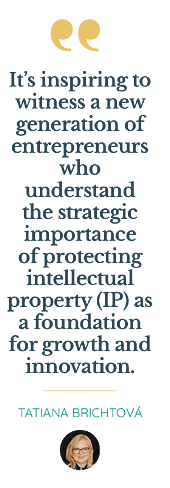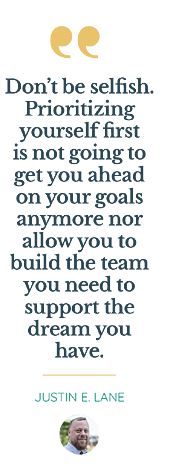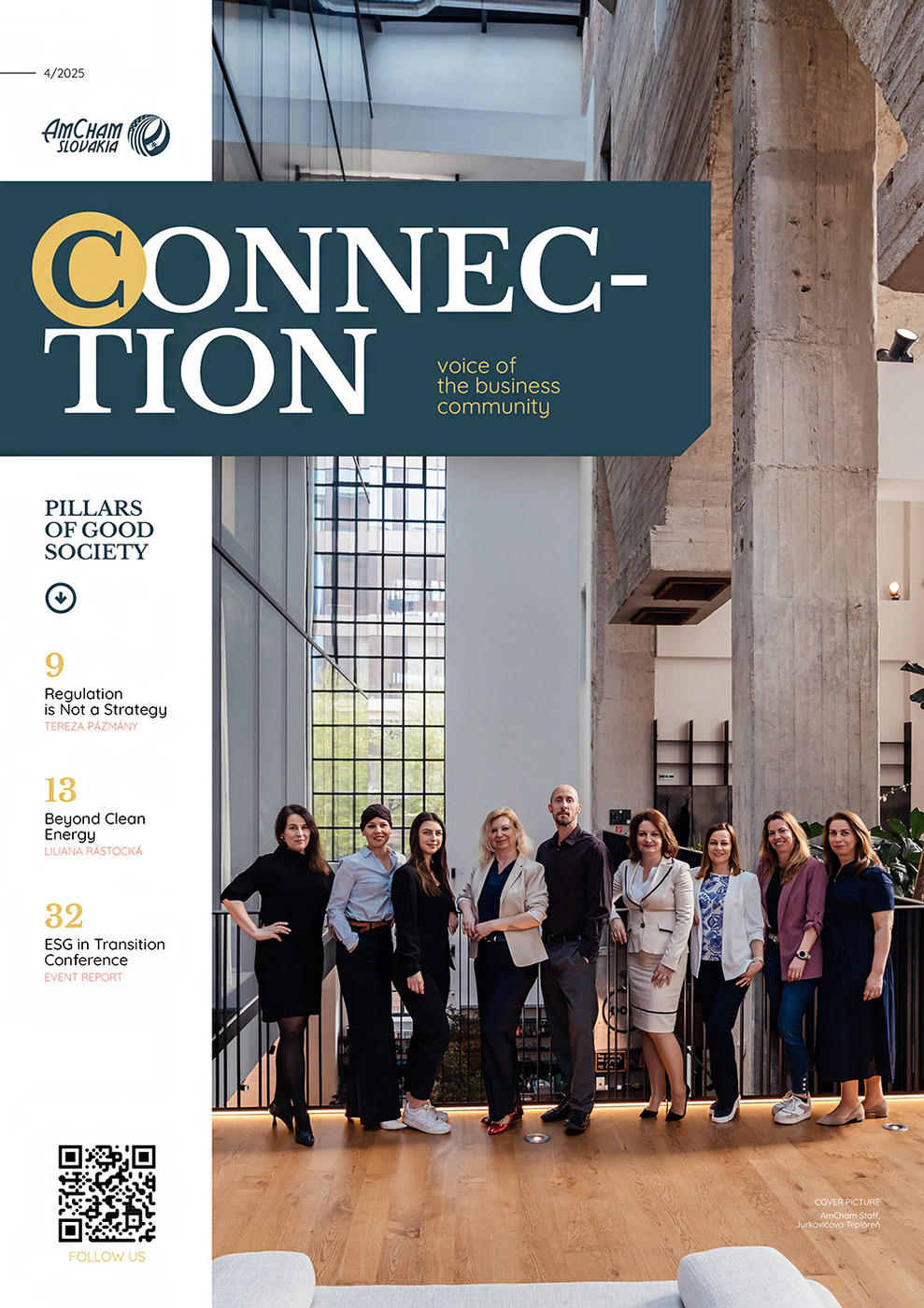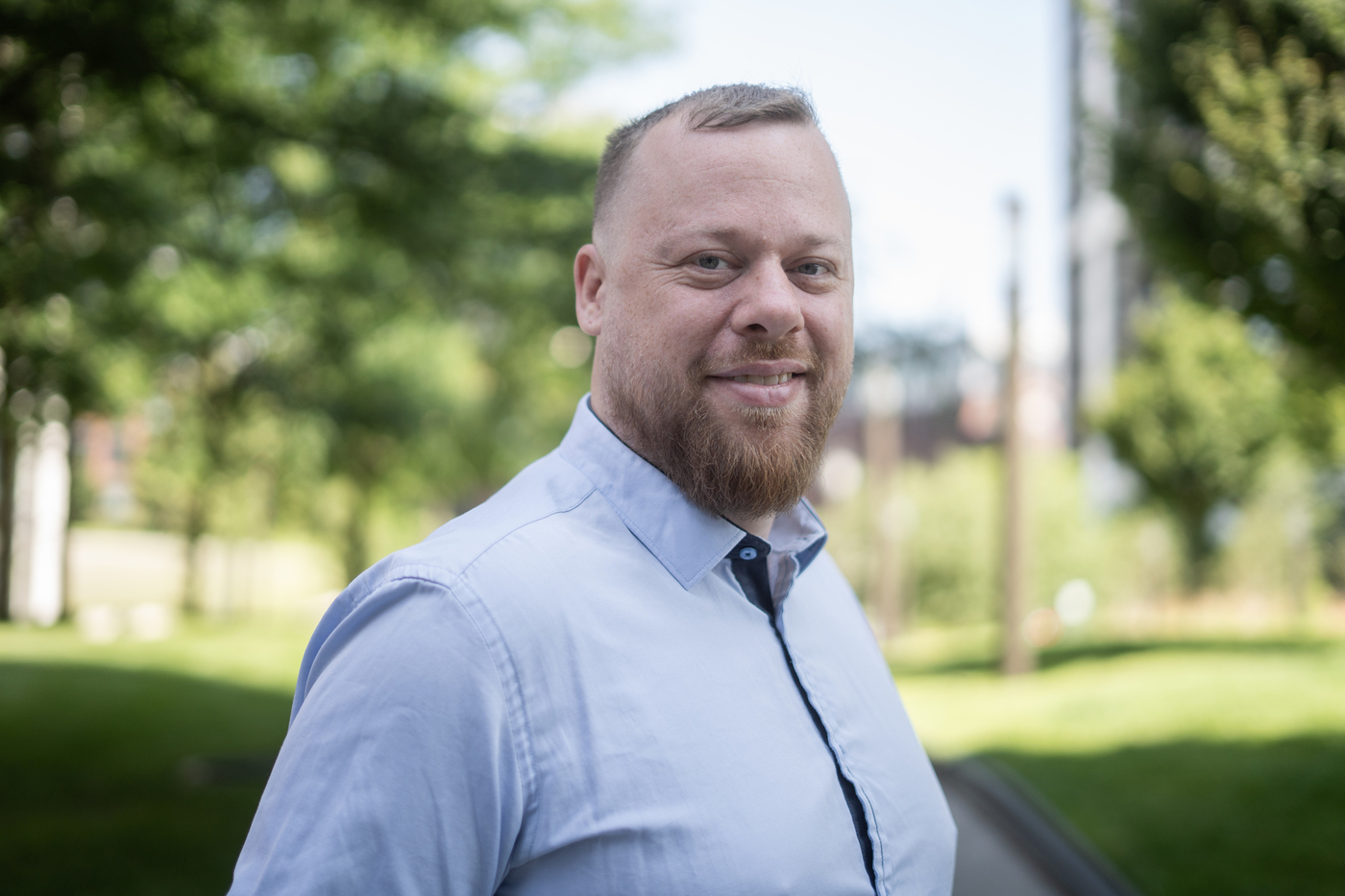What do you currently perceive as the biggest challenge or the biggest opportunity in your life?
(TB) The biggest opportunity is the increasing confidence of Slovak technology companies and their willingness to think and act globally. It’s inspiring to witness a new generation of entrepreneurs who understand the strategic importance of protecting intellectual property (IP) as a foundation for growth and innovation. At the same time, this presents a challenge: to continually evolve as legal advisors, educate the market, and ensure our services remain at the forefront in a rapidly changing digital and global business environment.
(JL) The biggest opportunity right now is translating our experience from conflict zones and government work into the B2B space. We’ve proven that our tech works in high-pressure, high-stakes environments, and now we’re building tools that businesses can use to better understand public sentiment, mitigate risk, and engage their audiences more effectively. The challenge is scaling that impact while keeping our psychological and ethical foundations intact. If we can do both, we can allow the B2B work that we do to support the future research needed to have even further positive impact in conflict zones around the globe.
On the personal side, balancing startup life with family life isn’t easy, but it keeps everything in perspective. As important as growing my business is, raising a functional and productive member of the next generation is a legacy that can’t be ignored.  What achievement from the past 12 months are you proud of the most?
What achievement from the past 12 months are you proud of the most?
(TB) In addition to our rebranding and marking 35 years of Brichta & Partners, I’m especially proud of the new format we’re bringing to Slovakia this year – the Protect and Grow 2025 conference, taking place on 11 November 2025 at Lab28.
It’s a unique event focused on brands, innovation, technology, and their protection from both legal and business perspectives. We’ll be hosting international experts — including a leading software patent specialist from the UK, AI and IT law professionals from Hungary and Austria, and Slovakia’s most influential AI-focused YouTuber.
This conference is not just a celebration of our past, it’s a step into the future, where expertise meets vision. Our goal is to create a space where Slovak businesses can gain global insights and practical tools to protect what they’re building.
(JL) One of the highlights this year was securing our largest investment round to date. That wasn’t just a financial milestone. It signaled that investors across Europe and the U.S. believe in our mission and our ability to scale it globally. It gives us the resources to grow the team internationally, expand the platform, and push deeper into the B2B market. I’m also really proud of the impact we’ve had on the ground. Our work with the United Nations in Palestine and Bosnia helped shape real-time strategies for peacebuilding and resilience in communities under serious pressure. That combination of securing investment while delivering real-world value is exactly where I want CulturePulse to be.
What is the favorite part of your day and why?
(TB) One of my favorite parts of the day is the quiet evening, when I go for a walk or take time to meditate. It’s my moment to disconnect from the intensity of the workday, reflect, and recharge. I find a lot of clarity during those moments, whether it’s a walk in nature or just 10 minutes of silence. It’s a small ritual that helps me stay grounded, calm, and connected to what really matters.
Professionally, I also enjoy those moments when I get to see our clients’ ideas take shape, turning into brands, innovations, or international ventures. It’s incredibly fulfilling to be part of that creative process and know we’re helping to protect and grow something meaningful.
(JL) Later in the day and nights. It’s the one time in the day when I feel like I can do my best work. When I was a graduate student, the feeling that motivated me the most was those late nights at 1 or 2 AM when I was able to solve a problem and realize that the hard work was finally paying off and that there was a meaningful discovery I had made that I might be the only one to know until I get to share it the next morning. But at the same time, after lunch when the world starts to slow down and you can take a beat and enjoy the end of the day is much needed.
What regular habit or routine has had the biggest positive impact on your life?
(TB) Staying consistently curious and connected to both local and international developments in technology and law has shaped my professional and personal mindset. Attending conferences, reading, and building networks has become a regular habit that keeps me grounded and forward-thinking.
(JL) The routine I’m forced into with my family is probably the biggest positive impact. Without them, I tend to just bury myself in books and work till 2 AM and don’t really get outside to see the world. With them, it creates a routine of exploration and seeing what is going on and forces me to take the time for what matters instead of just being addicted to work all the time.
What advice would you give to your 20-something-year old self?
(TB) Trust your vision and don’t be afraid to build something new, even if it seems unconventional at the time.
When I started, very few people were paying attention to intellectual property, it wasn’t a “hot topic,” and many underestimated its importance. But I believed, even then, that no business can exist without ideas, and that IP would become one of the most valuable assets in the world.
So my advice would be: stay committed to what you believe in, even if no one else sees it yet. That early belief, that ideas matter, and protecting them matters even more, shaped not only my career, but the direction of our entire firm.
(JL) Don’t be selfish. Prioritizing yourself first is not going to get you ahead on your goals anymore nor allow you to build the team you need to support the dream you have.
What are the parts of your work that still excite you and give you motivation?
(TB) The intersection of innovation, law, and business is endlessly motivating. I’m especially excited by the evolving role of IP in global markets, the challenges brought by AI and digital transformation, and the opportunity to guide companies through these changes in meaningful ways.
(JL) Solving real world problems in a way that is actually informed by something more than opinion. Being able to bring science and research into areas like policy and conflict resolution motivates me a lot. In the past, I’ve also often felt frustrated with everything from the economy to the conflicts we see on the news, wishing there were rational solutions instead of just more of the same nonsense we see on social media. Having the ability to produce something that shapes positive impact in the real world, and to demonstrate that AI and cognitive science aren’t just university subjects but the future of positive impact, is energizing; particularly when I was told for so long that it won’t work. So, when I see our tech being used to inform policy or to help prevent violence, that gives me all the motivation I need.
If you had to make a career switch, in what other profession can you imagine yourself?
(TB) If I weren’t a lawyer, I’d likely be in a role deeply rooted in helping others—perhaps as a doctor. The ability to alleviate suffering and directly improve someone’s quality of life is profoundly meaningful. Like law, medicine is a profession built on trust, expertise, and service. Alternatively, I could see myself in education or strategic consulting, helping individuals or companies understand the value of their ideas and how to protect and scale them. Whether healing people or empowering them intellectually, creating real impact through service and knowledge would still be at the heart of what I do.
(JL) I really like hard problems, so I’d probably either go deeper into quantitative finance or robotics. Both of those were things that I’ve loved for years. Can you name three sources you have recently learned from or have inspired you the most?
Can you name three sources you have recently learned from or have inspired you the most?
(TB) Business and leadership podcasts – Even after 35 years in the legal industry and leading teams, I find value in fresh perspectives on strategy, innovation, and people. I believe staying curious is key to staying relevant.
GoBigname’s work on branding and identity — their strategic clarity and courage to challenge norms helped us rethink how we present and position our own firm.
Key case law developments – I closely follow decisions that shape the future of IP law. Some of the cases we’ve worked on have even made their way into academic materials, which is both humbling and motivating.
(JL) One of the podcasts I listen to habitually is the All-In with Chamath, Jason, Sacks & Friedberg, not just for the content and different perspectives, but also the fact that you have four of the most influential people in tech and investing speaking. The fact that they’re one of the top five podcasts in the U.S. is an interesting thing to reflect on culturally. It makes me glad that being successful is becoming cool again.
I’m also a fan of the Lex Friedman podcast. His push to get a lot of sides of the argument is something I think we need in society, but the fact that he also brings in some of my intellectual heroes like Stephen Wolfram to discuss complexity theory makes it even better.
I’d say the third most recent source has been the SCSP Memos to the President series. It’s a series of interviews with top minds and innovators in the AI and tech space looking at how the U.S. can utilize and should implement AI and other technologies in a changing geopolitical space. It’s done from a very realistic foundation where you can see the passion people have for their mission, but are able to leave the politics aside to give clarity and action in a world where everything seems overly reduced to 250 characters or soundbytes for TikTok. They don’t even go that deep to be honest, they just provide an insight that is great to consider when people want to see what might be around the corner.
All three of these sources teach me a great deal and inspire me to keep improving—especially as an American living in Europe. Since all three feature immigrants who moved to the U.S., as an immigrant from the U.S., I find it fascinating to compare their experiences with my own journey as someone who left the U.S. for Europe, and to reflect on what each culture can learn from the other.
What is your biggest fear for the generation of today’s children? What about the biggest hope?
(TB) My biggest fear is that polarization, instability, and misinformation could hinder their ability to think critically and collaborate meaningfully.
But my biggest hope is that they will embrace innovation with values, and grow up in a world where technology is used to solve real problems, not just create profit, and that they will know how to protect their ideas and make them flourish globally.
(JL) My biggest fear for the generation of today’s children is that they will lose touch with the natural world and the real human connections in their lives, becoming consumed by the digital world instead. Too often, I see people at concerts, experiencing what could be a once-in-a-lifetime event, but instead of being present, they watch it through their phones even when their heroes are right in front of them. If reality is entirely mediated by algorithms, and when given the choice between the natural and the digital they consistently choose the digital, then what happens when the power goes out? That disconnection from what is real and right in front of them is what worries me most.
My biggest hope is that the polarization and instability we are living through today is only a phase, and that the next generation will lead with more principle and courage than much of the leadership we have seen in recent decades. For too long, hard decisions have been avoided and kicked down the road, and now the responsibility will fall to them. Even though they may not remember the struggles and atrocities of the 1900s, whether under socialism, racism, or xenophobia, I hope they will have both the wisdom and the courage to make the right choices when confronted with the challenges ahead. In some places today, I already see cracks in the old patterns, and that gives me hope that this generation might fill the void with the clarity and integrity that has too often been missing in the last decade.
Tatiana Brichtová, Co-Founder, Partner and Attorney, Brichta & Partners
Justin E. Lane, Co-Founder & CEO, CulturePulse




Follow us